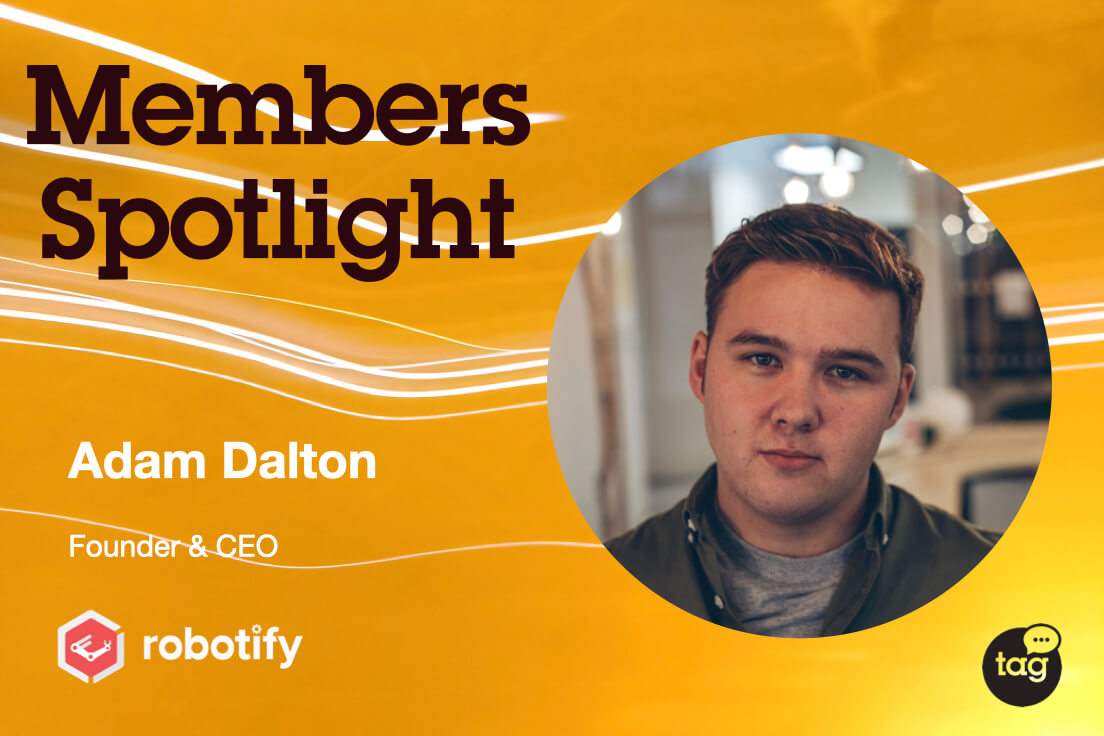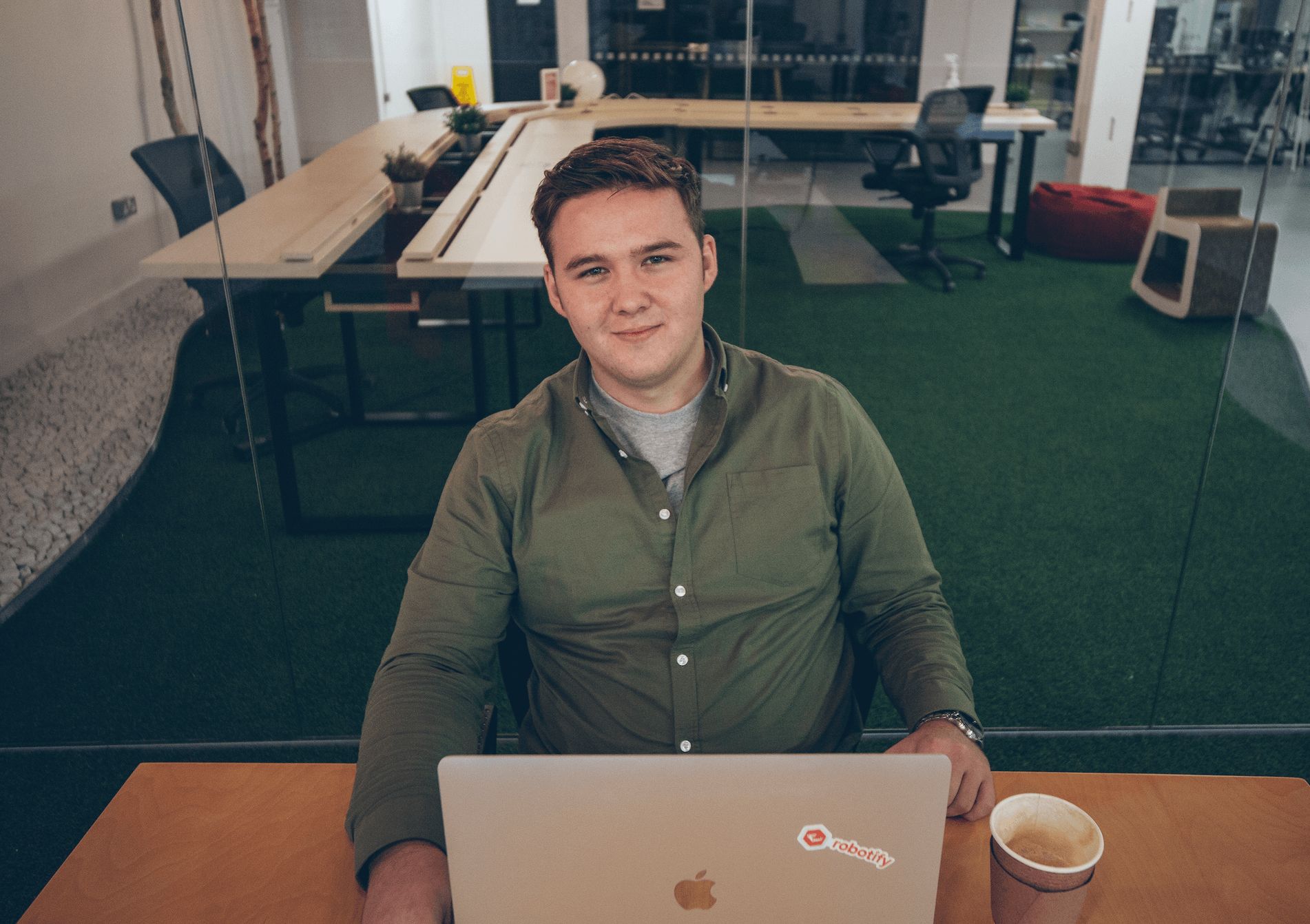Bringing Robotics from the Classroom to Space: A New Generation of Entrepreneurship!



You recently announced your success in landing a contract with the European Space Agency, how does it feel to be working with the ESA?
This is something we’ve been working on for a long time. We have been trucking as a company for a long time now and in the last 18 months things have really skyrocketed for us, because of the technology that we have built. We’ve created some really strong technology to simulate objects, providing robotic simulations for businesses. Around 12 months ago I became aware of an opportunity with ESA as they're actively looking for ways to increase access to robotics.People need to upskill and retrain and gain access to robotics. There's a lot going on in the agritech industry and the mining industry. These industries need a lot of human involvement and are gradually transitioning to robotics. I spotted an opportunity that can pair some of the stuff we’re doing for simulation space to what the ESA is working on with earth observation. To put it simply, what we’re working on in the next 12-18 months is to take data from satellites that are currently orbiting the earth and to model this data in our in-browser simulation engine. Those satellites are taking a lot of data around how warm the planet is, shifts in land movement and creating digital elevation models, which is a 3D model of a place. For example, say there's a farmer and in a remote place, who wants to upskill and automate their processes so they decide to work with a robotics company. If the engineer flies to the farmers location with heavy equipment that might cost €100,000 for onsite testing and onsite training, what happens if the farmer decides they don't want it or isn't effective in their location? Our proposal is that you can take the digital elevation model from a satellite orbiting Earth to look at the field and give our system the data to generate a 3D model of the system. As a result of our robotic simulation software, we can put the robot in that 3D world and test the efficacy of that robot without the engineer ever having to move. The farmer can zoom in on their laptop without downloading any software and see how the robot can perform based on real life data of how that robot may fit with their situation and furthermore learn how to use it via an in-browser application which is what our value is. It's a big project but it's great for our business. We expect to more than double our headcount in the next 12 months. We also had a product launch that went live in December. Robotify is launching a new course with a very lovable new robot called Axel whose adventure is on Mars. We’re also launching a multiplayer service Roboduel which is our first ever full virtual multiplayer game that allows players to practice against each other.“There's a huge trend in this area. By 2034, 47% of jobs will be automated and replaced with robots.”
That sounds amazing! Usually, we hear most people go from student to entrepreneur but you started Robotify before beginning college. What was that like?
I’ll admit that it was difficult. Myself and my co-founder Evan started Robotify in secondary school so when Evan and I went to college we had to find time to settle in. We had to get used to not seeing each other everyday as we were both studying different courses. There was a bit of a diversion at the start as I was in my Business course and he was in his Engineering course so we separated a little bit. We noticed that our business certainly slowed down in our first year of college so we got in touch with lecturers to ask for advice and help and they were able to give us office space in DCU Alpha and eventually we came to Talent Garden.Moving forward I found it difficult in college. I didn’t have much time to connect with people in my course and go to all of my lectures while I was studying full time. Although, I recently received my graduation certificate in the post! To be honest, Year 2 was a full year on campus and Year 3 was INTRA, or work experience, so I obviously did that at Robotify. Year 4 was a complete trainwreck in terms of being completely signed off from campus because I was so busy. Luckily, my girlfriend is in the same course so she was able to help me out a good bit.“That's what made us closer, having this shared space to work together.”
How do you balance enjoying your 20’s and allowing time for yourself with scaling Robotify?
I’m actually very happy and satisfied with where I am at the moment. I suppose what really helped is that I have a circle of really supportive friends, family and my girlfriend. I couldn’t sustain any of my activities without that. I do think there are sacrifices that go along with it. I have very few university friends, as I was never fully focused on it.One thing that I’d encourage people to do is to find time for your mental health. I know a lot of people do meditation everyday which is a great step but it's not really for me. I go to my counsellor every week, and even if you don't think you have issues, it's just one hour of your week and it can help so much to navigate your journey. I can’t emphasise enough the importance of protecting your mental health. I certainly had problems of my own, when you run a business you often ignore yourself.“You have to make choices and the most important thing throughout that is keeping in touch with your mental health. You are giving the controls over to someone else when you’re balancing many responsibilities, family, college and on top of that one of the most challenging journeys of my life so far - navigating the rocky road of a startup.”
“I got to a point where I know that if you don't invest in yourself, your business isn’t going to go anywhere regardless of how much investment you have.”
On your website you mentioned 48% of Robotify users are women. Is it important to you to encourage more women to be part of the tech industry?
Absolutely. I think one of the barriers to that issue is some of the preconceived ideas around roles in society. What we’re finding in education, especially in the US, is that this image is changing. People are starting to question these set gender roles. We enable students through our technology to not discriminate and not to put people into certain roles. We don't look at any of our stuff as a course for boys, we look at things as why wouldn't a girl enjoy this? We’re conscious of gender pronouns, we make sure everything's gender agnostic so we put that focus on design for everyone.The funny thing is a lot of the young women that are coding on Robotify are outperforming their male peers and it's beautiful to see as a company who wants to encourage breaking stereotypes at a young age. We have run courses and the mix is 50/50. I just don't know where this notion has come from that women shouldn't be engineers or in the tech industry. It doesn't make sense to me and it shouldn't be like that. It is something we’re proud of and we want to continue to promote. We also want to partner with organizations that send the same mission and if we have a partner that would be in any way against that mission, we wouldn’t work with them. My team are brilliant and my education team are very conscious and aware of bias so we aim to build courses that are fully inclusive no matter how you identify.“There's a point where it comes down to society to ask why shouldn't a young woman feel empowered to code and compete?”
Tell us about your proudest moment in the past few years?
There's so many along the way. My biggest achievement is how strong we’ve kept to our mission. When we started Robotify in secondary school we were just teaching students how to put together robots and hardware units. We’ve kept that central part to our mission every step of the way. We looked at the market and saw that robots are great and that kids love them. They’re too expensive, not accessible and can be inefficient in the classroom environment and that's stopping widespread adoption. Every single stage of the way we have kept robots central to what we do, hence the name Robotify. And now we’re providing leading virtual in-browser robotic solutions across any device and we’re making robots cost-effective, efficient and accessible to all students. It's not just the rich kids that get it anymore. We’re making robots worth millions in a virtual world. So yes, my proudest moment is that we’ve kept true to our mission. We deeply care about equity, accessibility and education for all.Learn more about Robotify:
[embed]https://www.youtube.com/watch?v=fM7NpPt_1NE[/embed]
Don't Waste Your Talent. Turn It Into a Career With a Course That Fits Your Needs!
Keep reading

A complete guide to Game UI

The Human Factor: A Key Risk in Cyber Security

The Definitive Guide to Digital Product Management

